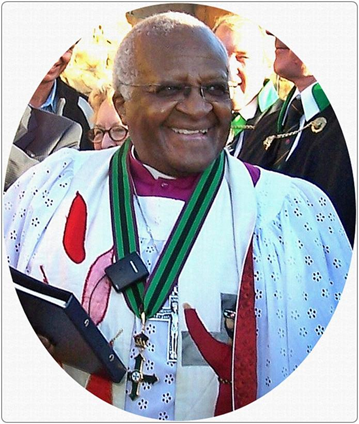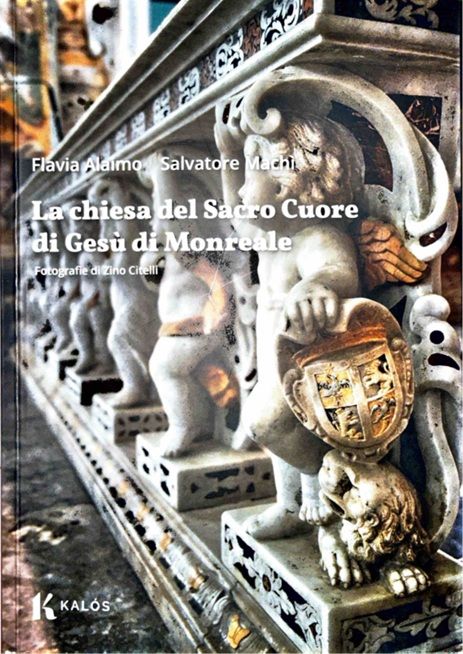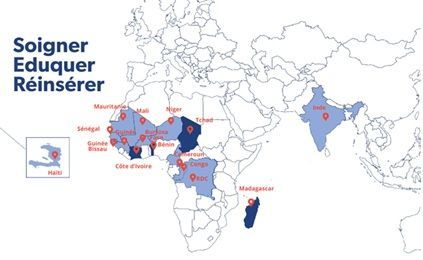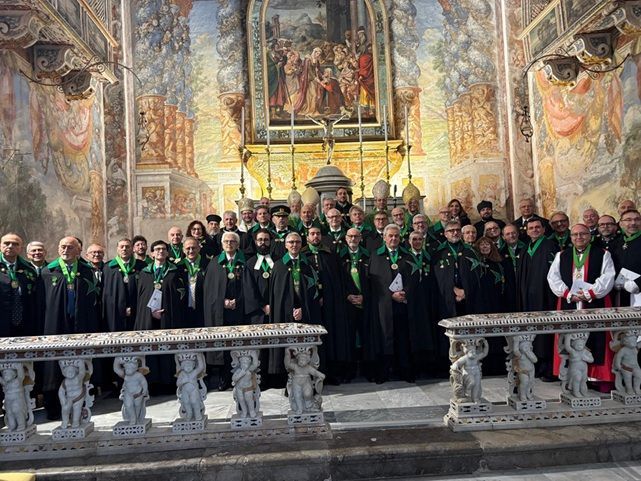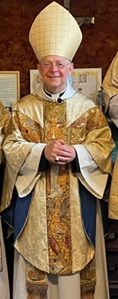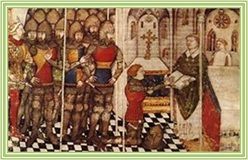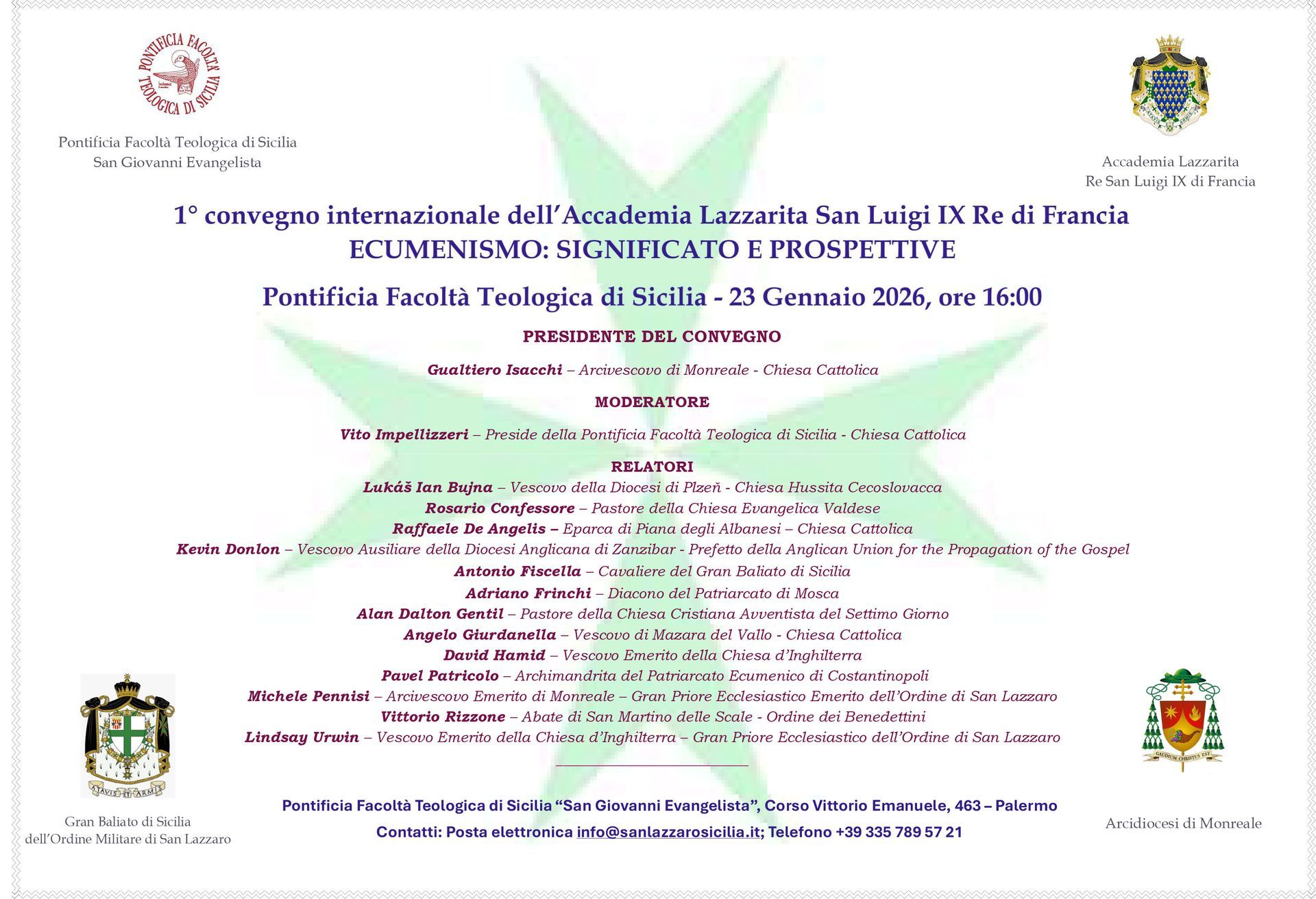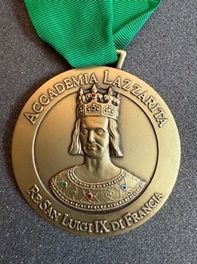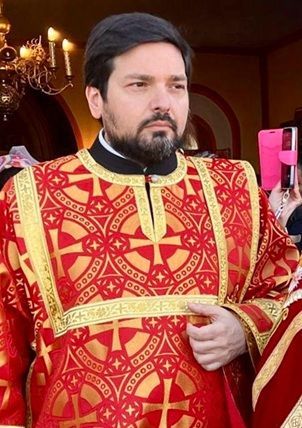OMAGGIO ALL’ARCIVESCOVO ANGLICANO DESMOND TUTU CAPPELLANO GRAN CROCE DELL’ORDINE DI SAN LAZZARO
OMAGGIO ALL’ARCIVESCOVO ANGLICANO DESMOND TUTU CAPPELLANO GRAN CROCE DELL’ORDINE DI SAN LAZZARO
(Il Molto Reverendo Arcivescovo Desmond Tutu, GCLJ )
L'arcivescovo Desmond Mpilo Tutu, GCLJ, (7 ottobre 1931 - 26 dicembre 2021) è stato un vescovo e teologo sudafricano anglicano, noto per il suo lavoro come attivista anti-apartheid e per i diritti umani. È stato vescovo di Johannesburg dal 1985 al 1986 e poi arcivescovo di Città del Capo dal 1986 al 1996, in entrambi i casi essendo il primo nero africano a ricoprire la carica.
Tutu è nato da una famiglia povera di Xhosa e Motswana a Klerksdorp, in Sudafrica. Raggiunta l'età adulta, si formò come insegnante e sposò Nomalizo Leah Shenxane nel 1955, da cui ebbe quattro figli. Nel 1960 fu ordinato sacerdote anglicano e nel 1962 si trasferì nel Regno Unito per studiare teologia al King's College di Londra. Nel 1966 tornò in Africa, insegnando al Seminario Teologico Federale in Sudafrica, e poi all'Università del Botswana, Lesotho e Swaziland. Nel 1972, divenne il direttore del Theological Education Fund per l'Africa, una posizione con sede a Londra, ma che richiedeva viaggi regolari nel continente africano. Tornato in Africa meridionale nel 1975, servì prima come decano della Cattedrale di Santa Maria a Johannesburg e poi come vescovo del Lesotho.
Dal 1978 al 1985, Tutu fu come segretario generale del Consiglio Sudafricano delle Chiese.
Nel 1985 divenne vescovo di Johannesburg e nel 1986 arcivescovo di Città del Capo, la posizione più alta nella gerarchia anglicana dell'Africa meridionale. Sempre nel 1986, divenne presidente della Conferenza delle Chiese di tutta l'Africa, con conseguenti ulteriori viaggi nel continente. Dopo che il presidente F. W. de Klerk rilasciò l'attivista anti-apartheid Nelson Mandela dalla prigione nel 1990 e i due condussero negoziati per porre fine all'apartheid e introdurre la democrazia multirazziale, Tutu assistette come mediatore tra le fazioni nere rivali. Dopo che le elezioni generali del 1994 portarono ad un governo di coalizione guidato da Mandela, quest'ultimo scelse Tutu per presiedere la Commissione per la Verità e la Riconciliazione per indagare sugli abusi dei diritti umani commessi in passato sia dai gruppi pro che da quelli anti-apartheid. Dopo la caduta dell'apartheid, Tutu ha fatto una campagna per i diritti degli omosessuali e si è espresso su una vasta gamma di argomenti, tra cui il suo sostegno ai palestinesi nel conflitto israelo-palestinese (insieme alla sua contemporanea convinzione del diritto di Israele ad esistere), la sua opposizione alla guerra in Iraq e le sue critiche ai presidenti sudafricani Thabo Mbeki e Jacob Zuma.
Nel 2008 è stato investito come Cappellano Gran Croce dell'Ordine Militare ed Ospedaliero di San Lazzaro di Gerusalemme e, nel 2017, la Regina Elisabetta II lo ha nominato Balì Gran Croce del Venerabile Ordine di San Giovanni.
Il Gran Baliato dell'Ordine di San Lazzaro in Sudafrica e tutto l'Ordine piangono la scomparsa di un illustre confratello, un grande uomo di pace.
TRIBUTE TO THE ANGLICAN ARCHBISHOP DESMOND TUTU GRAND CROSS CHAPLAIN OF THE ORDER OF SAINT LAZARUS
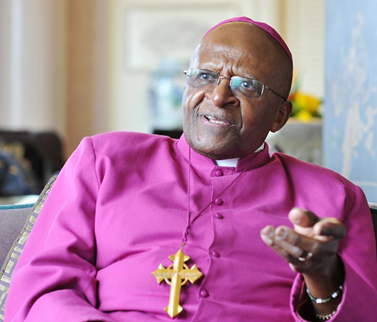
(The Right Reverend Archbishop Desmond Tutu, GCLJ)
Archbishop Desmond Mpilo Tutu, GCLJ, (7 October 1931 – 26 December 2021) was a South African Anglican bishop and theologian, known for his work as an anti-apartheid and human rights activist. He was Bishop of Johannesburg from 1985 to 1986 and then Archbishop of Cape Town from 1986 to 1996, in both cases being the first black African to hold the position.
Tutu was born of mixed Xhosa and Motswana heritage to a poor family in Klerksdorp, South Africa. Entering adulthood, he trained as a teacher and married Nomalizo Leah Shenxane in 1955, with whom he had four children. In 1960, he was ordained as an Anglican priest and in 1962, he moved to the United Kingdom to study theology at King's College London. In 1966 he returned to Africa, teaching at the Federal Theological Seminary in South Africa, and then the University of Botswana, Lesotho and Swaziland. In 1972, he became the Theological Education Fund's director for Africa, a position based in London but necessitating regular tours of the African continent. Back in southern Africa in 1975, he served first as dean of St Mary's Cathedral in Johannesburg and then as Bishop of Lesotho.
From 1978 to 1985, Tutu served as the general secretary of the South African Council of Churches.
In 1985, Tutu became Bishop of Johannesburg and in 1986 the Archbishop of Cape Town, the most senior position in southern Africa's Anglican hierarchy. Also in 1986, he became president of the All Africa Conference of Churches, resulting in further tours of the continent. After President F. W. de Klerk released the anti-apartheid activist Nelson Mandela from prison in 1990 and the pair led negotiations to end apartheid and introduce multi-racial democracy, Tutu assisted as a mediator between rival black factions. After the 1994 general election resulted in a coalition government headed by Mandela, the latter selected Tutu to chair the Truth and Reconciliation Commission to investigate past human rights abuses committed by both pro and anti-apartheid groups. Following apartheid's fall, Tutu campaigned for gay rights and spoke out on a wide range of subjects, among them his support of Palestinians in the Israeli–Palestinian conflict (alongside his simultaneous belief in Israel's right to exist), his opposition to the Iraq War, and his criticism of South African presidents Thabo Mbeki and Jacob Zuma.
In 2008 was invested with the Ecclesiastical Grand Cross Chaplain of the Military ed Hospitaller Order of Saint Lazarus of Jerusalem and, in 2017, Queen Elizabeth II appointed him as a Bailiff Grand Cross of the Venerable Order of St. John.
The Grand Bailiwick of the Order of St. Lazarus in South Africa and the entire Order mourn the passing of a distinguished confrere, a great man of peace.

